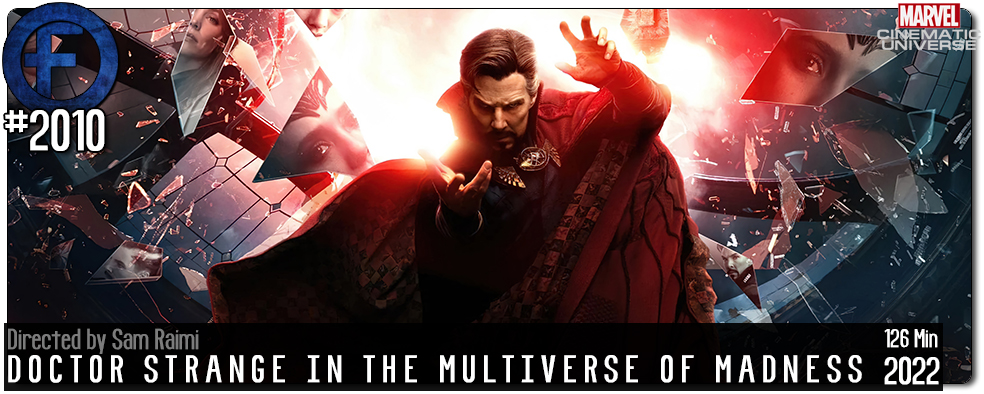Movie Review – Doctor Strange In The Multiverse Of Madness
Principal Cast : Benedict Cumberbatch, Elizabeth Olsen, Benedict Wong, Xochitl Gomez, Chiwetel Ejiofor, Michael Stuhlbarg, Rachel McAdams, Julian Hilliard, Jett Klyne, Sheila Atim, Adam Hugill.
Synopsis: Dr. Stephen Strange must help a young girl from alternate universe from being pursued by demonic forces, until he discovers that Wanda Maximoff, a former Avenger, is trying to use the girl’s multiverse-hopping abilities for her own tragic reasons.
********
Warning: Mild spoilers within.
As promised in the title, Marvel’s follow-up sequel to 2016’s Doctor Strange truly does delve in to utter madness. With original helmer Scott Derrickson dumped in favour of cult director Sam Raimi, with whom producer Kevin Feige had worked on the early 2000’s Spider-Man films, the sequel spreads its wings into territory so totally bananas and defiant of all reason I suspect even long-time fans of the Marvel Cinematic Universe may be left wondering what it was all about. The film also neatly ties off the Wanda Maximoff subplot which has been growing in expectation since the character’s full-fledged debut in Avengers: Age Of Ultron, although perhaps not in quite the showdown manner fans may be expecting. Filled with Raimi’s trademark horror-esque camerawork and backed to the hilt by the best visual effects money can buy, Doctor Strange In The Multiverse Of Madness isn’t quite the slam-dunk home run promised at the end of WandaVision or even Spider-Man: No Way Home despite everyone’s best efforts, leaving something of a sour taste in the mouth once the expected closing credit stings arrive.
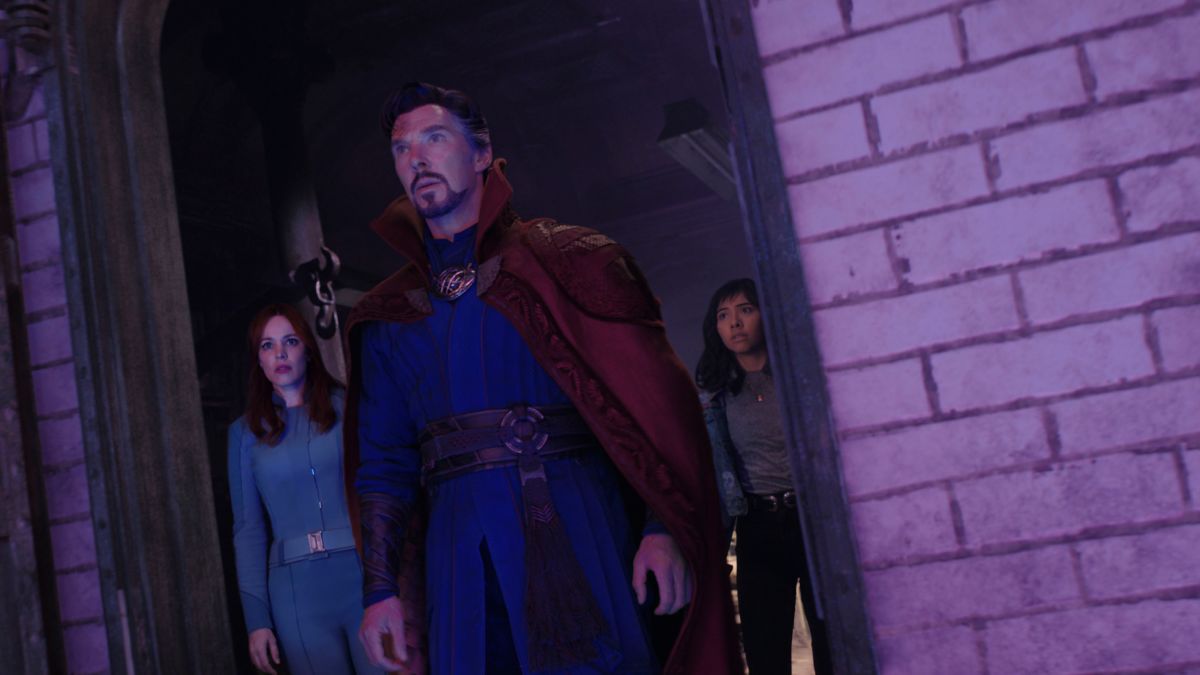
A young woman, America Chavez (Xochitl Gomez – pronounced SOH-chee) hurtles through the barriers of the multiverse and lands in ours, specifically in New York City, where Doctor Stephen Strange (Benedict Cumberbatch) is attending the wedding of his former fiancée Dr Christine Palmer (Rachel McAdams). Chavez is seemingly incapable of controlling her powers, which can breach the multiverse and allow her (and anyone with her) to travel to any universe they desire. Chavez is pursued by demons from alternative dimensions, a fact Strange takes to seek aide from Wanda Maximoff, aka the Scarlet Witch (Elizabeth Olsen). However, instead of aide, Strange and Wong (Benedict Wong) learn that Wanda herself if manifesting these trans-dimensional beings to hunt down Chavez in order to bring her to our world, where a grief-stricken mother is hoping to find a universe in which her two sons, Billy and Tommy (Julian Hilliard and Jett Klyne) are alive and eternally young. Skipping between our universe and others, Strange and Chavez try to locate a mysterious book granting the sorcerer the ability to defeat Maximoff in battle, all whilst the Scarlet Witch is in hot pursuit.
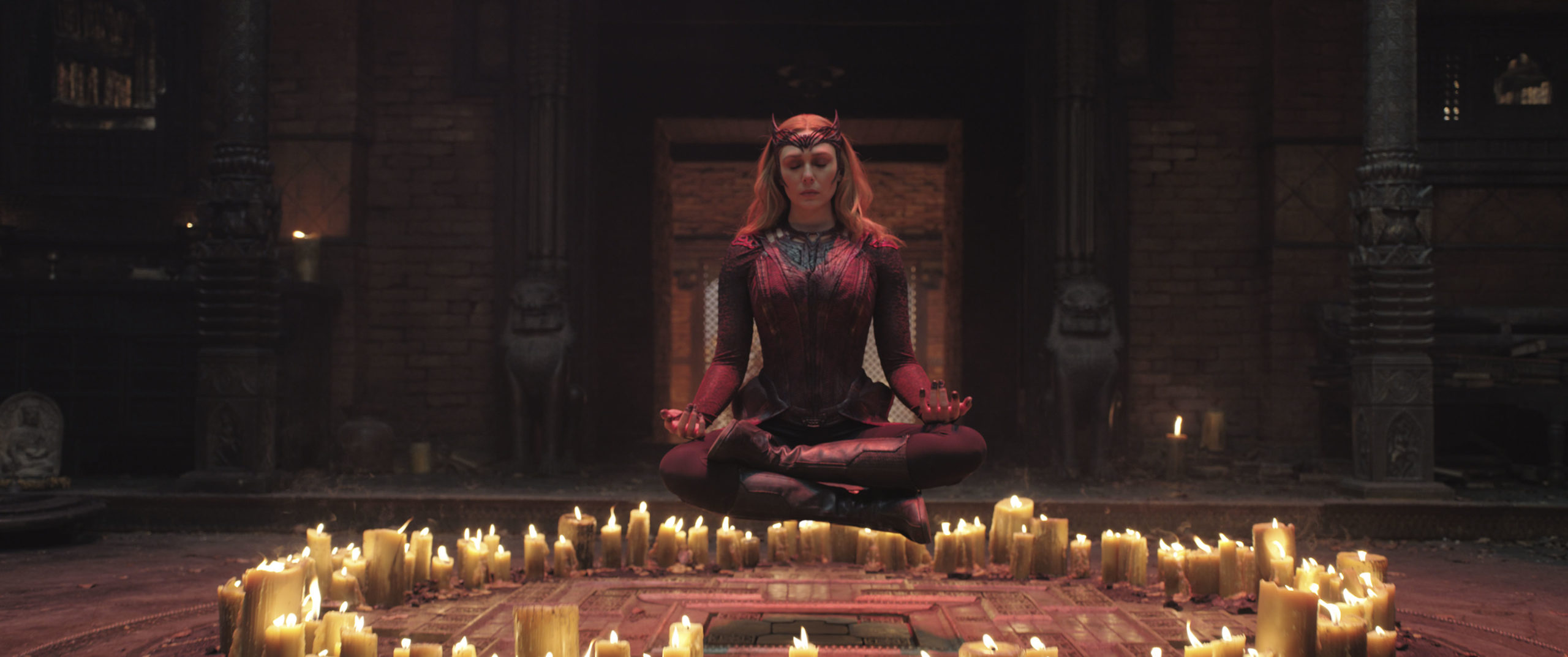
Multiverse of Madness promises a lot, and delivers a lot. If only the things it promised and delivered were compatible. Surprisingly, Sam Raimi’s debut MCU film is a lot of sour notes hit with the force of a hundred horror-film clichés, pushed through Marvel’s established veneer of superheroics and apocalyptic shenanigans occurring every second Tuesday. A lot of this has to do with the treatment of Olsen’s Wanda Maximoff, who has been depicted as both a villain (Age of Ultron), a heroine (Infinity War and Endgame), and then a tragic, misunderstood villain again (WandaVision), in an intriguing character arc that always felt like a tragedy but with the glimmer of hope her redemption would be cathartic. Sadly, this isn’t the case, as Multiverse Of Madness turns her into a one-note villain with an obsession bordering on insanity, without contextualising the depth of her grief, anger and hatred at any point. It wrecks the carefully constructed backstory of her appearances in previous films and tries to turn her into some kind of martyr, or mystical pariah, but the script lacks the cohesion to generate empathy for Maximoff’s final fate within the MCU, and her final act lightbulb moment comes too late, with too little heft, to justify all the carnage. Wanda’s arc deserved a Thanos-level depth of development in this film to pay off the years her fans put into her story: Multiverse of Madness feels like a shoulder-shrug to it all.
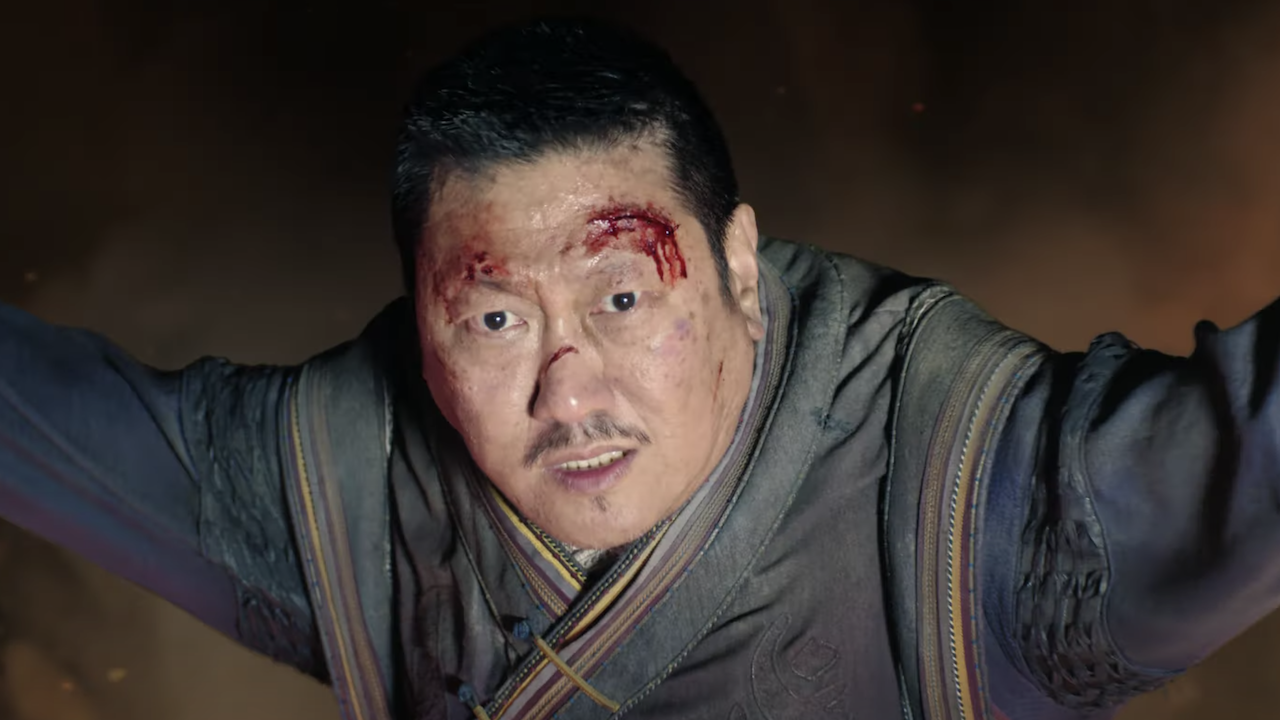
The plot is also enormously complicated, and incredibly convoluted, to say the least. Multiverse Of Madness has stepped even further away from the grounded, almost believable Iron Man from 2008 and has shuffled us well into high fantasy comic-book adventures, most of which feel too inconsequential thanks to a predominance – nay, an overreliance on – computer effects and spectacular setpieces that assault the viewer with imagery that looks cool, but doesn’t satisfy. There’s a lot of multiversal exposition going on with this, and at times it feels a touch overwhelming trying to remember what universe we’re in at any given moment, as Strange and Chavez transport from “our” universe into others, with one character revealing that they’re all numbered – our universe is 616 – to the point of exhaustion. What you might hope is an entertaining romp through parallel worlds ends up being a slog just trying to understand what the hell is going on. The film offers up an explanation of dream-walking, in which a character from one universe can insert their consciousness into the bodies of the multiversal counterparts and assume control, which creates all manner of problems for the film’s chaotic, frenzied climax.
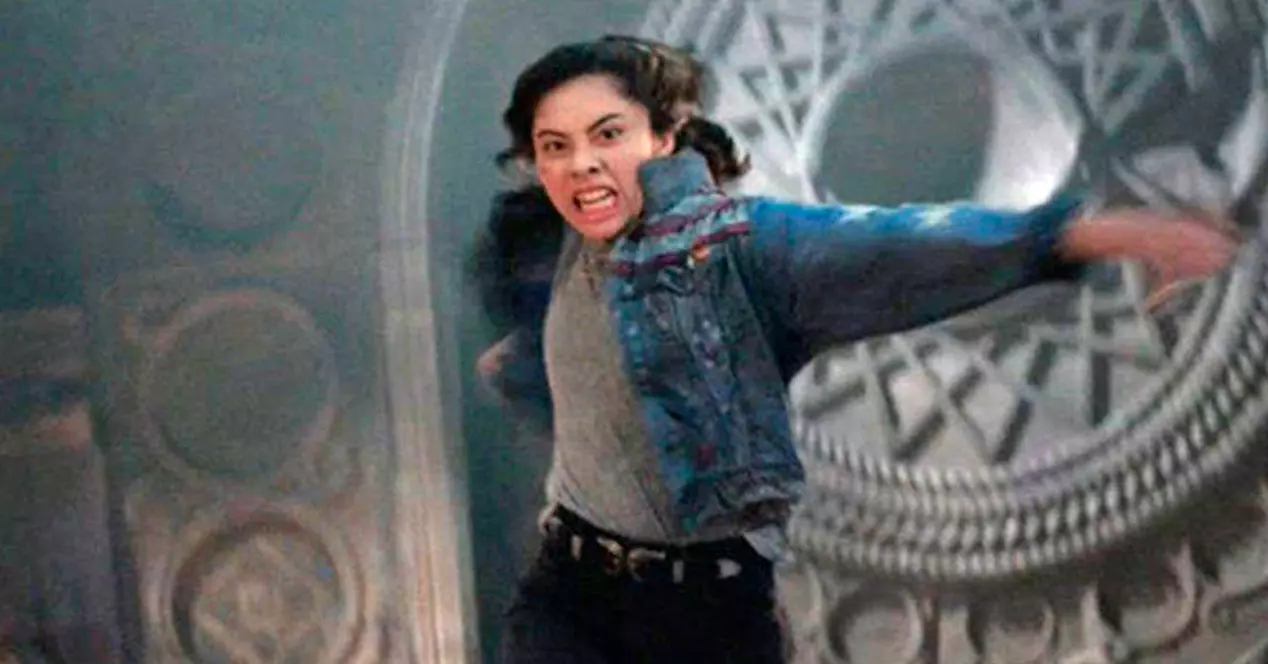
Crucial to the film working at all is the relationship between Chavez and Strange, who form a weird buddy-comedy duo traipsing through all manner of physics-and-logic-defying universes to reach the one in which the redemption of Wanda might be found. Benedict Cumberbatch’s easy-going charm as Strange, despite being a bit of a dick here and there, and the wonderful Xochitl Gomez, as America Chavez, combine to form a delightfully witty, paternalistic double act, Chavez a proxy for the child Strange never had with Rachel McAdams’ Dr Palmer. The relationship between Strange and Palmer is also expanded somewhat in this film, certainly more than the original film, and you get the sense McAdams had a lot o fun bouncing off Cumberbatch’s variant takes on Strange than she did wandering through three scenes total in her first appearance in the MCU. Fan favourite Benedict Wong, as the Sorcerer Supreme, Wong, continues to prove he’s the heart-and-soul of the Doctor Strange franchise, bickering and sniping alongside Cumberbatch with practiced ease. Chiwetel Ejiofor pops in as an alternative Mordo, a contemporary of Strange’s who transitions from ally to foe with diverging ideas on how the mystic arts are to be utilised, and it’s great to see the actor play a small but pivotal role in this outing. I had hoped he wouldn’t be hidden away following the events of Doctor Strange but in this, whilst not “our” version of Mordo, he seems to be having a great time.
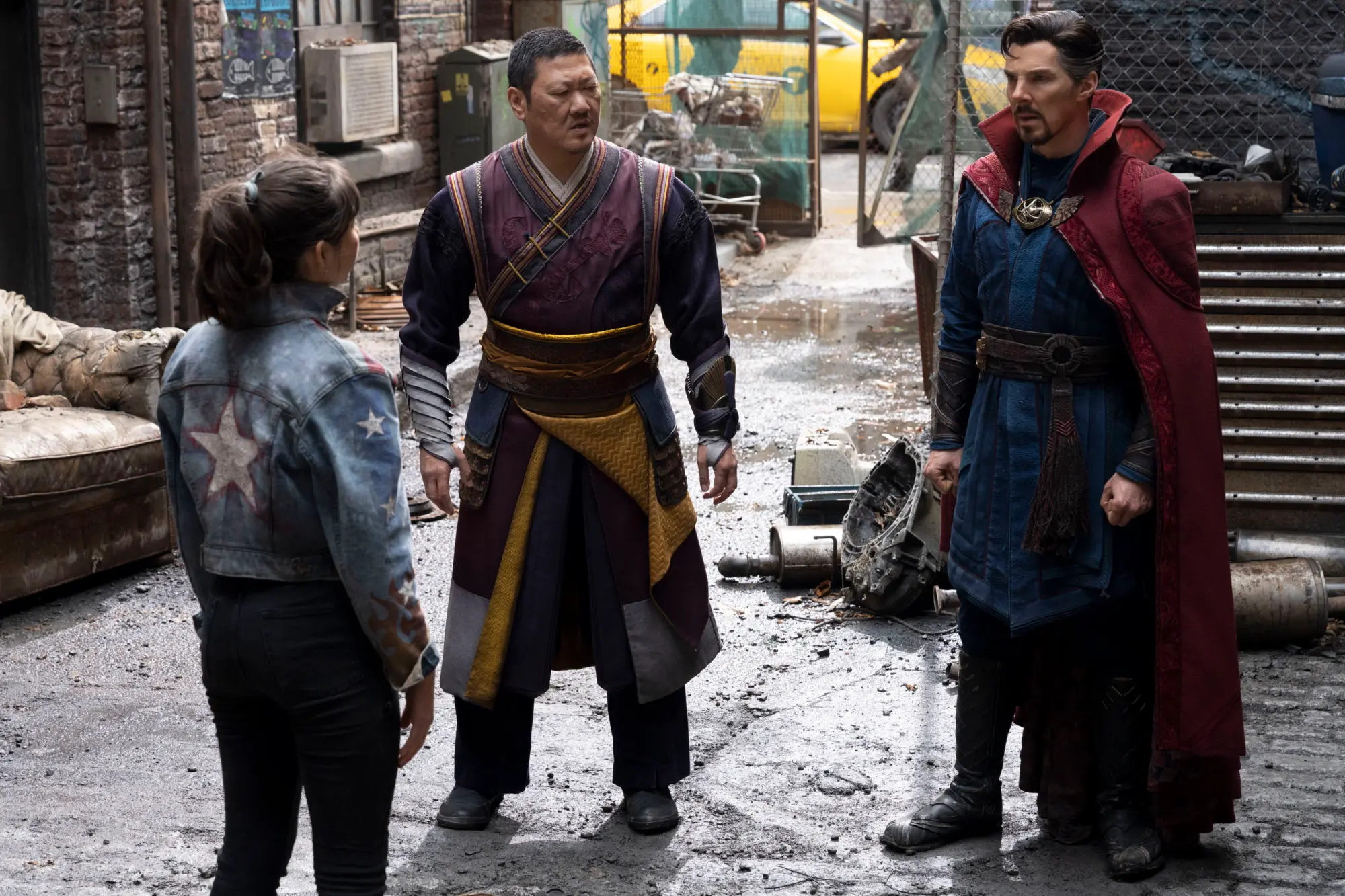
The film’s emotional anchor, however, is Elizabeth Olsen’s Wanda Maximoff. Olsen is terrific in the role, having inhabited it for the best part of a decade now. While I found the character’s treatment overall was detrimental to the MCU – and again, her arc here left me with a terrible taste in the mouth – I can’t fault Olsen’s dedication to the performance and her elevation of the material. She more than commands the screen whenever she’s on it, and the callbacks to the events of WandaVision offer brief, albeit jumbled, restitution for the manner in which her character is handled by the writing. If anyone owns this film on a performance level, Elizabeth Olsen has the receipts.
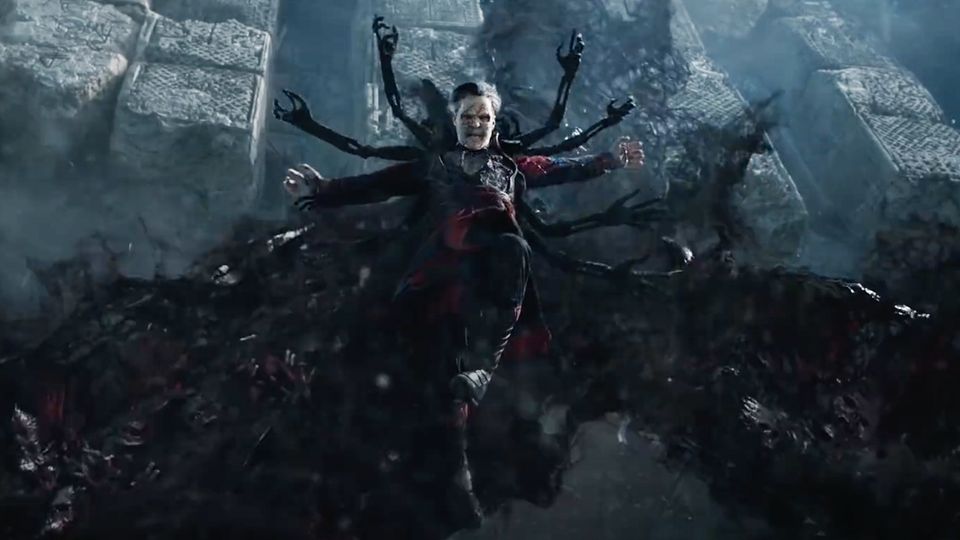
Revealed in some of the film’s marketing material, Multiverse of Madness has a smattering of MCU cameos. The best ones come with the introduction to viewers of Marvel’s Illuminati, a secret group of superheroes who work behind the scenes to keep the world safe, with membership belonging to a variety of superpowered beings – most notably, the film introduces Patrick Stewart’s iconic Professor Charles Xavier into the MCU, in a crucial scene, as well as several other sparkling cameos and a satisfying fan service payoff many years in the brewing. The film maximises its use of these cameos and “guest star” appearances with some shocking outcomes for them all, liberally upending audience expectations and most definitely causing some gasps with my cinema audience. Cameos for the sake of a gimmick become tiresome quite quickly, but I’m pleased to say Raimi and his production team deliver on the promise of fan-service and make these characters count. I’m slightly disappointed we didn’t get to see any established character cameos – such as Tony Stark or Steve Rogers in alternative modes – but the ones we did get make the Illuminati totally worthwhile.
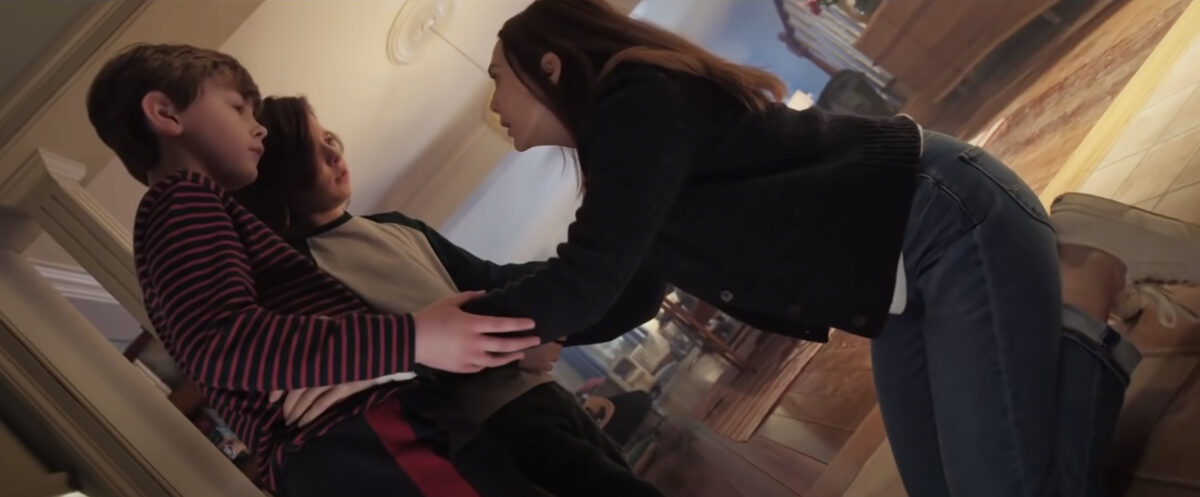
I really found long stretches of Doctor Strange In The Multiverse Of Madness tough going on a purely storytelling level. The film tries to cram in so many ideas with such speed you feel a little overwhelmed by the experience. There’s also so much destructive action and expectation on the audience to follow what’s going on, Multiverse of Madness is probably the first stand-alone non-Avengers film I’ve seen where you need to know where we’re at before you watch it. Several people in my screening obviously hadn’t seen WandaVision, which is perhaps the most vital piece of information not revisited by the film’s narrative expediency, and folks who haven’t seen it will likely lose out on understanding the vast bulk of Wanda’s motivation for her actions. This is a deficiency in the film, in my opinion, and one that could have been explained away with a couple of quickfire lines of dialogue and maybe even a mini-flashback montage or something. Anything to contextualise the actions of Wanda Maximoff, who comes across as simply insane without depth, rather than a carefully curated character living in her own tormented head. Raimi does well to juggle all the balls in the air here, but I felt Multiverse was overstuffed with material and character beats without really giving us time to enjoy them, or even earn the audience’s appreciation for them. Quiet moments in the film were rare, and when they occurred blessed character development seemed so easy to sit with for a moment. But then it’s on to the next raucous battle sequence or magical visual effects (all of which are superbly rendered – not a CG pixel in this film is out of place) and the emotional beats of the film tend to get lost in Raimi’s pulverising rollercoaster style.
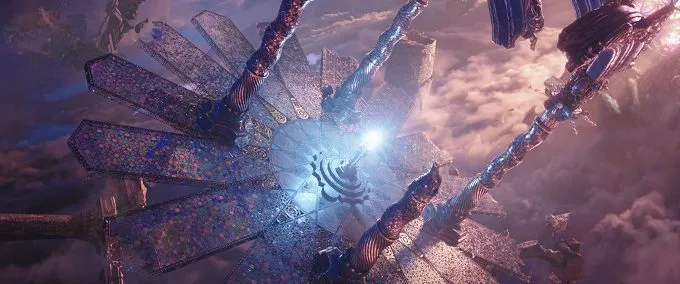
If it sounds like I roundly hated Multiverse of Madness, please know that I actually did have some fun with it despite my misgivings. The action sequences are well shot and deliver rousing, wildly entertaining superheroic adventure, filled with throwaway moments and asides that zing like the best Marvel have offered through their history. The acting performances (as different from the writing of the characters) are all excellent, the production design is truly one of the highlights of the whole movie, and Danny Elfman’s accompanying score is suitably dizzying, echoing the gravity-defying camerawork involved in some aspects of the film. In short, I think I just didn’t like the direction the film took with one of the franchise’s most enigmatic and kickass characters, and it soured me on the whole thing. I hope – I really do hope – I can find some pleasure in rewatching this film down the track somewhere, and seek out more enjoyment in the smaller, less universal-cataclysm moments the franchise uses as foundational pillars, but I would be lying if I said I wasn’t disappointed with this journey into the Multiverse of Madness.

